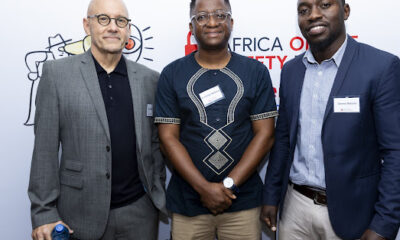Healthcare consulting firm Salient Advisory has launched its latest Intelligence Report, presenting findings on funding activity, covering grant, equity, and debt investments for African healthtech startups in 2023.
Titled “2023 RoundUp: Investments in African HealthTech”, the report provides analysis on funding trends in African healthtech ecosystems.
It provides insights for key stakeholders across governments, investors, donors and global health institutions, and is funded by the Bill & Melinda Gates Foundation.
While investments in African startups plummeted last year, mirroring global trends, healthtech showed resilience, experiencing only a 2% dip compared to a staggering 39% decline in the broader ecosystem.
The number of deals in African healthtech rose by 17% year-over-year (YoY) to 145, with total funding of $167 million and an average ticket size of $1.1 million. In total, 114 innovators received funding in 2023, with 23 receiving multiple investments in the year.
The number of deals for women-led companies remained relatively steady (26 in 2022 vs. 33 in 2023), however, the amount of funding saw a dramatic shift as the gender gaps significantly narrowed: women-led companies secured $52 million in funding –31% of all investments in 2023. This represents a 2000% YoY increase compared to the $2 million (1.4%) they received in 2022.
Online pharmacy solutions attracted the majority of investor capital, capturing 38% ($63 million) of all funding raised, driven by Series B funding rounds by Kenya’s Kasha ($21 million) and MyDAWA ($20 million), alongside Egypt’s Yodawy ($16 million).
Electronic medical records solutions were the second-best funded category, driven by Helium Health’s $30 million Series B funding round.
Equity investments accounted for 91% of total funding with an average deal size of $3.2 million. This significantly outpaced grants, which only contributed 7% of capital with an average ticket size of $168,000.
However, grants continue to play a crucial role in enabling access to early-stage funding for innovators to test and validate their business models. Debt funding remains rare as only one debt-based investment was tracked in 2023.
While still rare, merger and acquisition activity doubled in the past year with four key transactions. The prospect of future funding also appears strong as, despite broader economic headwinds which suggest a slowdown in funding for technology startups, over $600 million in new funding was announced by investors with an interest in African health systems.
Speaking on the launch of the report, Yomi Kazeem, Engagement Manager at Salient Advisory, commented:
“The resilience of African healthtech innovations shines through in the findings of this report. Amid difficult headwinds, these innovations continue to demonstrate commercially viable models that have the potential to improve access to healthcare and deliver impact at scale. The increased funding for women founders is a high point and, in coming years, investors must prioritise sustaining strategies that ensure equitable funding across founders.
Dr. Analía Porrás, Deputy Director, Global Health Agencies and Funds, Bill & Melinda Gates Foundation, also commented: “African healthtech has proven resilient over the past year, with innovators receiving investments to test, validate and scale solutions that have the potential to transform health systems across the continent. We are pleased to be playing a role by providing innovators with risk-tolerant capital through the Investing in Innovation program and hope to see the current resilience translate into increased confidence and funding from investors and donors.”

 Forex3 weeks ago
Forex3 weeks ago


 Naira2 weeks ago
Naira2 weeks ago
 Billionaire Watch2 weeks ago
Billionaire Watch2 weeks ago






 Naira3 weeks ago
Naira3 weeks ago






 Naira2 weeks ago
Naira2 weeks ago


 Naira1 week ago
Naira1 week ago




 Naira4 weeks ago
Naira4 weeks ago






 Naira1 week ago
Naira1 week ago

















